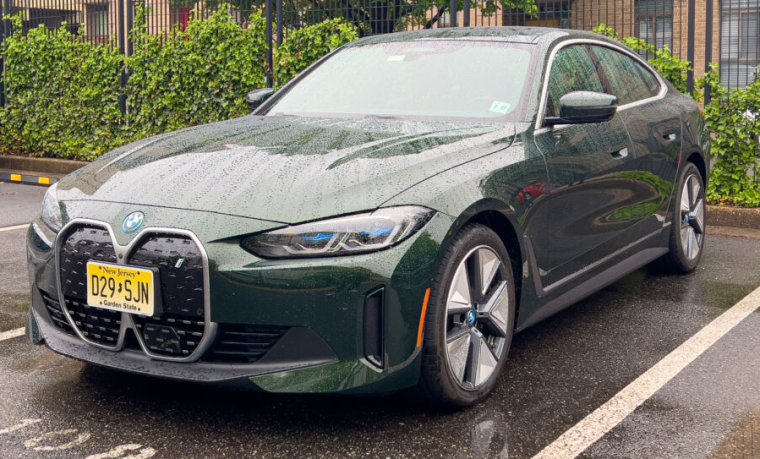The single-motor BMW i4 proves the less-powerful EV is usually better

Enlarge / BMW’s single-motor, rear-wheel drive i4 eDrive40 ticks an awful lot of my boxes. (credit: Jonathan Gitlin)
I have a theory about electric vehicles, and with a few notable exceptions, it’s this: The cheaper, less powerful version is usually the one to get. Big power outputs and short 0–60 times have been the industry’s go-to, but always with the trade-off being less range and a bigger sticker price. Today’s EV is a good example. It’s the BMW i4 eDrive40, a single-motor version of BMW’s smaller electric fastback sedan. It has taken a while to get some seat time in one, but the wait was worth it, because this is one of the best electric sedans we’ve tested so far.
I’ve driven the BMW i4 a few times now since its launch in 2021, but always the very fast, very powerful, rather expensive i4 M50. Which is fine, but not exciting like the M3. The i4 eDrive40 undercuts the twin-motor, all-wheel drive M50 by more than $10,000—it starts at a more reasonable $57,300 and goes more than 30 miles (48 km) farther on a single charge of the same capacity 84.3 kWh (net) battery pack, with an EPA range of 301 miles (484 km).
BMW made its name on the back of a string of driver-focused, rear-wheel drive sedans, and I had high expectations for the eDrive40 to live up to. With no front motor, there’s less weight on the front axle, and the front wheels just have to worry about steering and braking, not laying down power as well. Less power to put down means smaller wheels, which translates into a better ride and more range, although our test car was equipped with 19-inch wheels (a $600 option), which reduced its range to 283 miles (455 km) compared to the 18-inch option.



